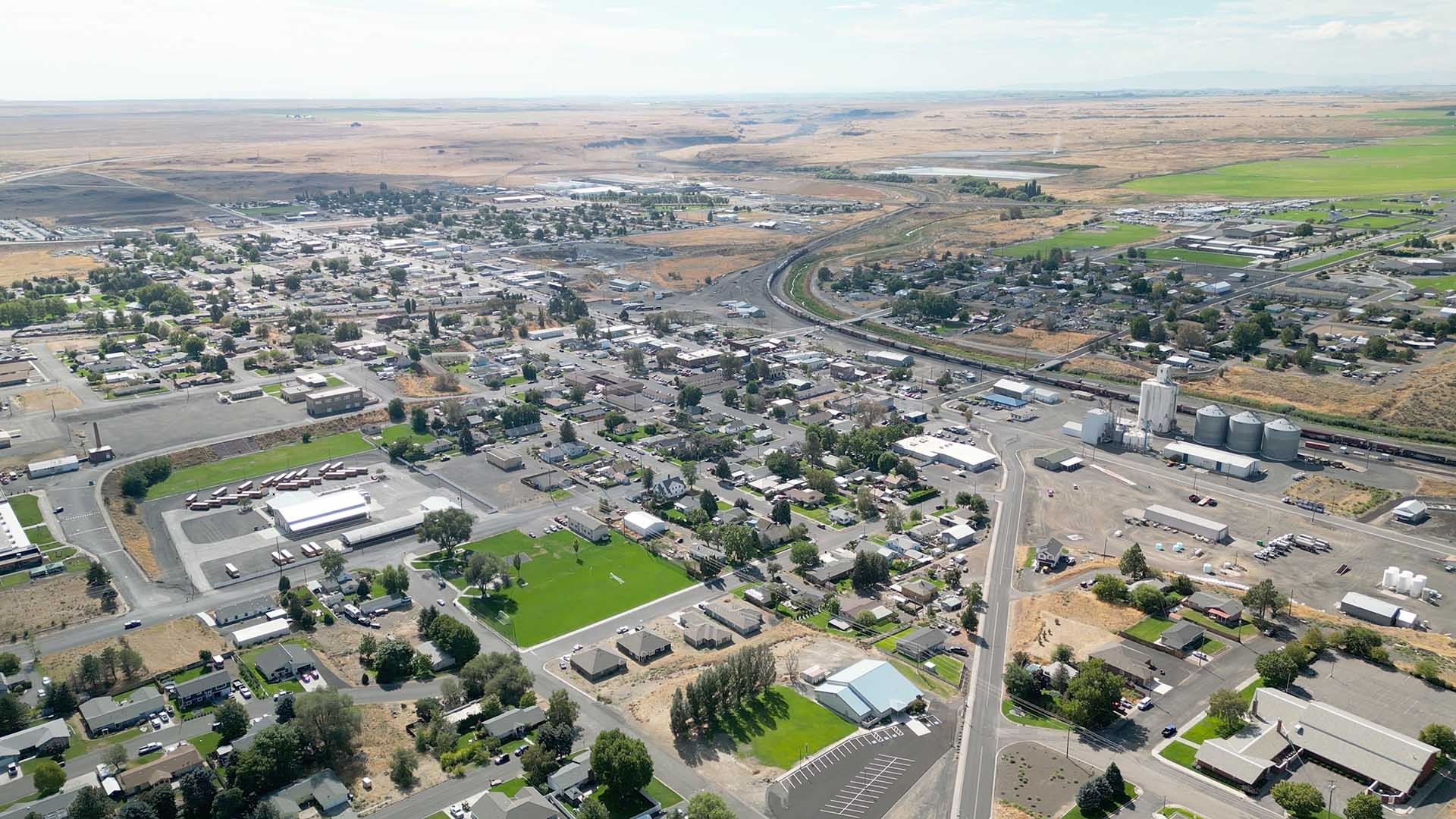Lamb Weston Closure Shakes Connell Community
A major blow to the town of Connell, Washington: The announcement of Lamb Weston's plant closure has sent shockwaves through the community. The French fry manufacturer, a significant employer in the area, is shutting down its Connell operation and laying off hundreds of workers. This unexpected development has left many residents facing uncertainty and economic hardship.
Economic Impact: The closure of the Lamb Weston plant is expected to have a substantial impact on Connell's local economy. The loss of jobs will not only affect the workers directly but also ripple through the community, impacting businesses, schools, and other institutions. Mayor Lee Barrow has expressed concerns about the potential loss of revenue for the town, which relies heavily on the plant's economic activity.
Reasons for the Closure: Lamb Weston has cited a decline in demand for frozen potato products as the primary reason for the closure. The company has also indicated that the Connell plant is an older facility with higher operating costs. This decision is part of a broader strategy to optimize its operations and better align supply with demand.
Community Response: The news of the closure has been met with disappointment and concern by residents and local officials. Many are worried about Connell's future and the challenges ahead. Efforts are underway to assist displaced workers and explore potential economic development opportunities to mitigate the impact of the plant's closure. The Greater Connell Area Chamber of Commerce has organized a Job Fair on October 25, 2024 to aid in resident retention.
"over 40-50 years, for some in town, this is the only job they've ever had..."
Lamb Weston's Strategic Decision: A Closer Look
The closure of the Lamb Weston plant in Connell, Washington, is a significant event for the local community. However, it also reflects broader industry trends and corporate strategies. Here's a deeper dive into Lamb Weston's decision and the factors that influenced it:
Industry Trends
- Softening Demand: Lamb Weston has attributed the closure to a decline in demand for frozen potato products, particularly in the restaurant and retail sectors. This trend may be related to factors such as economic conditions, changing consumer preferences, and increased competition from other food options.
- Rising Costs: The Connell plant is an older facility, and its operating costs may have become less competitive compared to newer, more efficient plants. This could be due to factors such as energy consumption, labor costs, or maintenance expenses.
Corporate Strategy
- Operational Efficiency: Lamb Weston's decision to close the Connell plant is part of a broader strategy to optimize its operations and improve efficiency. By closing older, less efficient facilities, the company can focus on its newer, more modern plants and reduce overall costs.
- Strategic Alignment: The closure may also be a part of Lamb Weston's efforts to better align its supply chain with demand. By closing the Connell plant, the company can reduce excess capacity and avoid producing more products than it can sell.
Factors Affecting Lamb Weston's Global Operations:
- Regional Demand Fluctuations: Different regions may experience varying levels of demand for frozen potato products due to economic conditions, cultural preferences, and competitive landscapes. If demand in Japan has declined significantly, it could contribute to a global oversupply that impacts profitability.
- Supply Chain Disruptions: Global supply chain issues, such as those caused by the COVID-19 pandemic, can affect the availability of raw materials, transportation costs, and overall operational efficiency. These disruptions might have had a greater impact on certain regions, including Japan.
- Competitive Pressures: Lamb Weston faces competition from other frozen food manufacturers both domestically and internationally. If competitors in Japan have gained market share or offered more attractive products, it could put pressure on Lamb Weston's operations in that region.
- Regulatory and Trade Barriers: Different countries have varying regulatory requirements and trade policies that can impact the cost and complexity of doing business. If Lamb Weston faces challenges related to these factors in Japan, it could affect its profitability and decision-making.

Lamb Weston first started in 1950 as a family business when F. Gilbert “Gib” Lamb purchased a defunct co-op plant in Weston, Or and incorporated it. He renovated the facility to become the most advanced pea processing plant in the US. In 1960, the water gun knife was invented – the first device to slice French fries in a high-velocity water flow – this quickly became the worldwide industry standard. They would have many inventions to come over the years. At Lamb Weston, they apply their inventive thinking to everything they do.
Connell History
In 1961, Lamb Weston officially entered the domestic potato processing market with the construction of a new processing plant in American Falls, ID. Over the next 10 years, the company developed additional processing plants in Connell and Quincy, WA and Hermiston, OR. New products were introduced over the years as well as new processing plants and expansions. They’ve earned and continue to earn – a reputation as an industry pioneer and one of the world’s leading suppliers of frozen potato products.
Lamb Weston was brought to Connell through the efforts of the North Franklin Development Group, an organization of local leaders. NFDG recognized the necessity of non-municipal and non-governmental forces putting together a development package that governing authorities could easily receive. Members included but not limited to: Jim Klindworth, David Hart, Gene Stocking, Molly Kunkel, Roger Bailie with later additions of Preston Hart, Steven Tomren, and Bevon Davis. The organization was disbanded in the 3rd quarter of 2024.
One of the largest employers in our community, the Connell plant employees approximately 375 people. The Connell plant used to fluctuate in the number of employees from harvest season to winter season but that is not longer the case. The Connell Lamb Weston plant runs approximately 300 days a year processing about 1,100 tons of potatoes a day! There are about 25 growers from the Columbia Basin and surrounding area that sell their crop to Lamb Weston. Offering many different potato products in their line – they have 30 different cut styles and 150 products. A few of the favorite products are lattice chips, crinkle cut fries, diced potatoes, and natural fries. Lamb Weston products are shipped all over the US as well as internationally.
Looking Ahead: While the closure of the Lamb Weston plant is a significant setback for Connell, the community remains resilient. It is hoped that through collaborative efforts and innovative solutions, the town can recover and find new paths for growth and prosperity.



